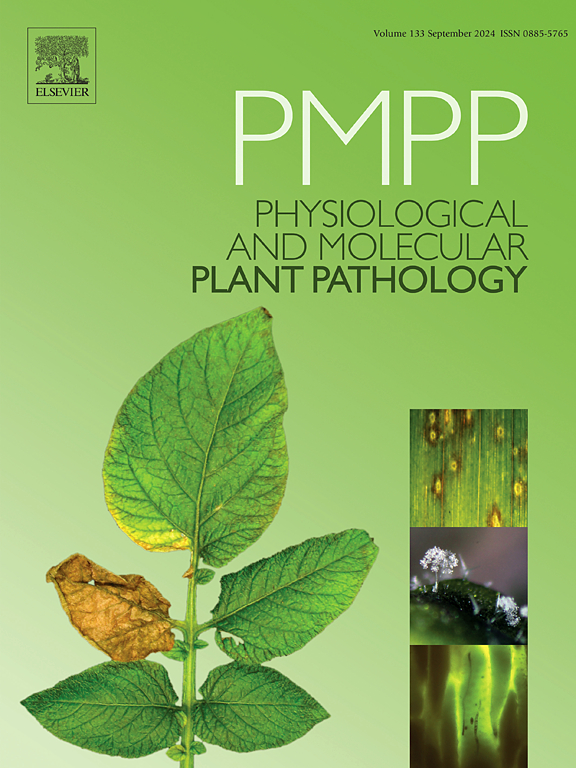激发子影响下植物次生代谢物的合成、胁迫管理应用及提高次生代谢物产量的离体技术
IF 3.3
3区 农林科学
Q2 PLANT SCIENCES
引用次数: 0
摘要
植物产生多种次生代谢物,这有助于它们适应环境胁迫和与微生物相互作用的能力。这些生物活性化合物包括黄酮类、萜类、生物碱和酚类物质,其主要功能包括植物的生态交流、防御和发育。多种代谢途径,如甲基赤藓糖醇磷酸(MEP),莽草酸和甲羟戊酸(MVA)途径参与其生产。它们经常由生物和非生物的压力源触发。激发子是一种模拟应激信号的化学或生物制剂,其使用是促进这些代谢物合成的关键策略之一。启动子启动某些信号转导级联反应,导致关键生物合成基因的转录控制,包括活性氧(ROS)的产生、钙内流和MAPK的激活。本文综述了次生代谢物的分类和生物合成、次生代谢物在逆境适应中的作用以及基于激发子的调控次生代谢物生产技术的最新进展。重点介绍了激发子对代谢物生物合成的影响、它们与植物防御信号的整合以及它们在可持续农业和制药工业中的应用。本文章由计算机程序翻译,如有差异,请以英文原文为准。
Synthesis of plant secondary metabolites under the influence of elicitors, application in stress management and in vitro techniques to enhance their production
A wide range of secondary metabolites are produced by plants, which aid in their ability to adapt to environmental stressors and interaction with microorganisms. The primary functions of these bioactive compounds, which comprise flavonoids, terpenoids, alkaloids, and phenolics, include ecological communication, defense, and development in plants. Various metabolic pathways, such as the methylerythritol phosphate (MEP), shikimate, and mevalonate (MVA) pathways are involved in their production. They are frequently triggered by biotic and abiotic stressors. The use of elicitors, which are chemical or biological agents that mimic stress signals, is one of the key strategies to boost the synthesis of these metabolites. Elicitors set off certain signal transduction cascades that lead to transcriptional control of the key biosynthetic genes, including the production of reactive oxygen species (ROS), calcium influx, and MAPK activation. The taxonomy and biosynthesis of secondary metabolites, their role in stress adaptation, and recent advances in elicitor-based techniques for upregulating their production are highlighted in this review. The effects of elicitors on metabolite biosynthesis, their integration into plant defense signaling, and their application in sustainable agriculture and the pharmaceutical industry are highlighted.
求助全文
通过发布文献求助,成功后即可免费获取论文全文。
去求助
来源期刊
CiteScore
4.30
自引率
7.40%
发文量
130
审稿时长
38 days
期刊介绍:
Physiological and Molecular Plant Pathology provides an International forum for original research papers, reviews, and commentaries on all aspects of the molecular biology, biochemistry, physiology, histology and cytology, genetics and evolution of plant-microbe interactions.
Papers on all kinds of infective pathogen, including viruses, prokaryotes, fungi, and nematodes, as well as mutualistic organisms such as Rhizobium and mycorrhyzal fungi, are acceptable as long as they have a bearing on the interaction between pathogen and plant.

 求助内容:
求助内容: 应助结果提醒方式:
应助结果提醒方式:


